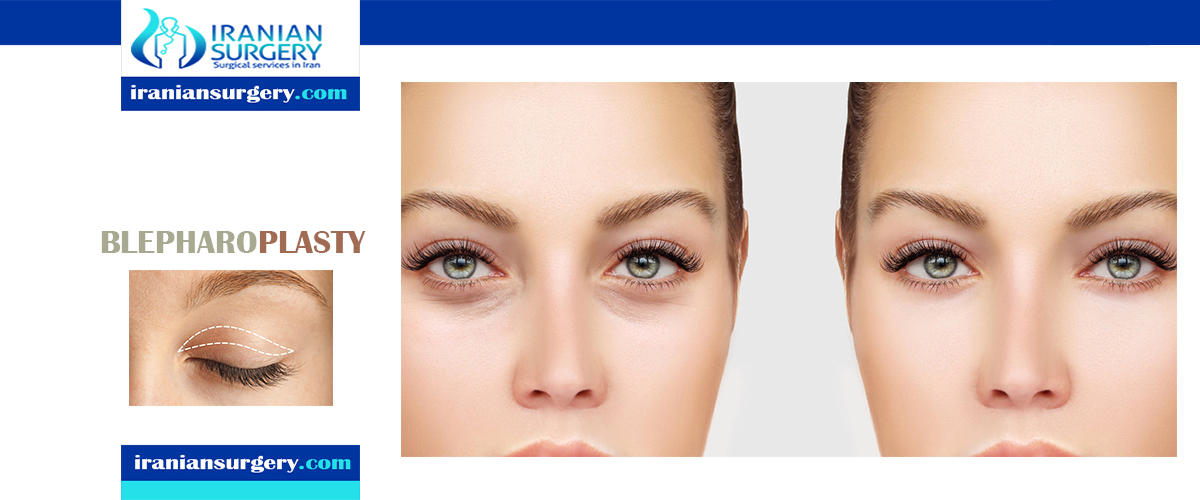Blepharoplasty recovery

Blepharoplasty Aftercare and Recovery
Your surgeon will discuss how long it will be before you can return to your normal level of activity and work. After surgery, you and your caregiver will receive detailed instructions about your post-surgery care, including information about:
. Normal symptoms you will experience
. Potential signs of complication
Read more about : Blepharoplasty incision
Read more about : Blepharoplasty complications
For the easiest recovery period, have the following items readily accessible at home:
. Ice cubes, ice pack, or freezer bags filled with ice, frozen corn, or peas (based on your surgeon’s recommendation for cold application to the eyelids)
. Small gauze pads
. Eye drops or artificial tears (ask your doctor to recommend the proper type to meet your particular needs)
. Clean washcloths and towels
. Over-the-counter painkillers, which your doctor can recommend, but avoid Advil, Motrin, Naproxen, Aleve, and aspirin due to the increased risk of bleeding
. Plan to stay home from work and limit your activities for a prescribed time after surgery to give your eyelids a chance to heal.
Read more about : Blepharoplasty scars
Immediately after eyelid surgery
. You may experience excessive tearing, light sensitivity, and double vision just after the surgery.
. Your incisions will be red and visible at first, and your eyelids may be puffy and feel numb for several days.
. Swelling and bruising, similar to having "black eyes," will likely last a week or more.
. Your surgeon will probably instruct you to apply ice packs or cold compresses to your eyes to help reduce swelling.
. Pain is usually minimal. You may be given a pain reliever such as acetaminophen (Tylenol or others) for mild discomfort, but remember to avoid aspirin, ibuprofen (Advil, Motrin, or others), naproxen (Aleve), and any other medications or herbal supplements that may increase bleeding.
. If stitches were used, they'll be removed after three or four days.
If you experience extreme or long-lasting pain or redness and swelling after the surgery, contact your surgeon to find out if these symptoms are normal or a sign of a problem.
Recovery time frame after eyelid surgery
It is vitally important that you follow all post-operative instructions provided by your surgeon. This will include information about bandages, taking an antibiotic if prescribed, and the level and type of activity that is safe. Your surgeon will also provide detailed instructions about the normal symptoms you will experience and any potential signs of complications. It is important to realize that the amount of time it takes for recovery varies greatly among individuals.
. The first two weeks
Although you will not have to rest in bed following surgery, you should plan to relax, stay home, and use cold compresses on your eyes on the day of surgery as well as the day after. The amount of time it takes for recovery varies. Here are some helpful guidelines:
. Follow your surgeon’s instructions for care. For the first couple of days following surgery, expect to treat the incisions with ointment to keep them lubricated and place cold compresses on the eyes to reduce swelling. You will be advised to use eye drops to keep the eyes from drying. If you have dry eyes lasting more than two weeks, contact your doctor.
. Sleep with your head raised higher than your chest. You can use regular pillows, wedge pillows, or sleep on a recliner. Minimize swelling and bruising by keeping your head elevated as much as possible during the first few days of recovery.
. After upper and lower blepharoplasty surgery your eyelids will typically feel tight. You can treat soreness with acetaminophen. Significant bruising typically occurs, but will resolve within two weeks.
. Avoid straining, heavy lifting, swimming, and strenuous activities, such as aerobics and jogging, for ten to fourteen days. Specifically, you should avoid activities in which you must move your head abruptly or that increase the blood pressure in your head. This restriction includes, but is not limited to, bending over, which causes your head to be lower than your heart, and lifting objects heavy enough to cause you to strain. This restriction may apply for three to four weeks.
. You may notice that your eyes tire easily for the first several weeks of the recovery period. Take frequent naps. Avoid activities that may dry the eyes, including reading, watching television, wearing contacts, and using a computer.
. For the first two weeks after your surgery, wear dark sunglasses to protect the eyes from irritation caused by sun and wind.
. Your plastic surgeon will remove the stitches between two and seven days after your eyelid surgery.
. You may feel well enough to resume normal activities around the tenth day of recovery.
. Seek medical attention immediately if you experience shortness of breath, chest pains, an unusual heart rate, new pain, bleeding, or visual disturbance.
Read more about : Face lift surgery
Read more about : Rhinoplasty recovery


1 Comment
Thank you for sharing this helpful information about Blepharosplaty on how to recover after the procedure.